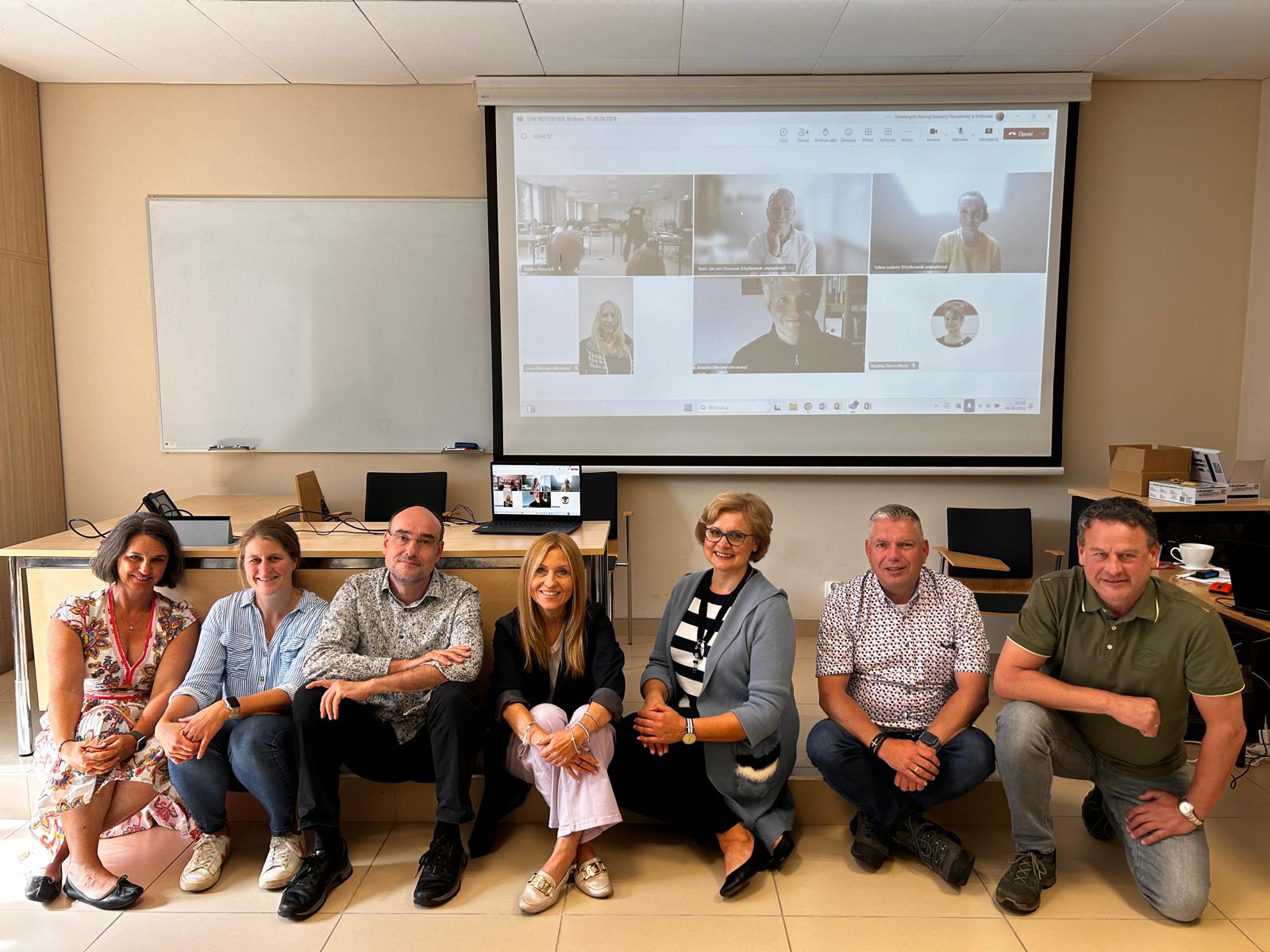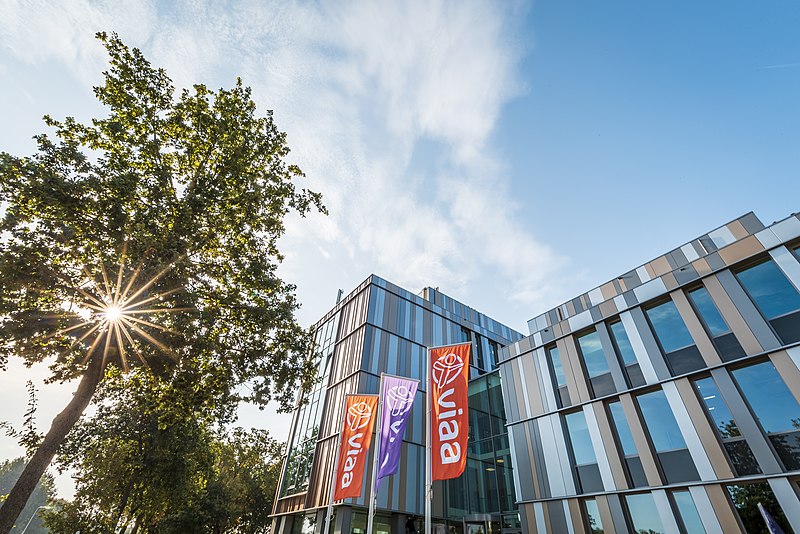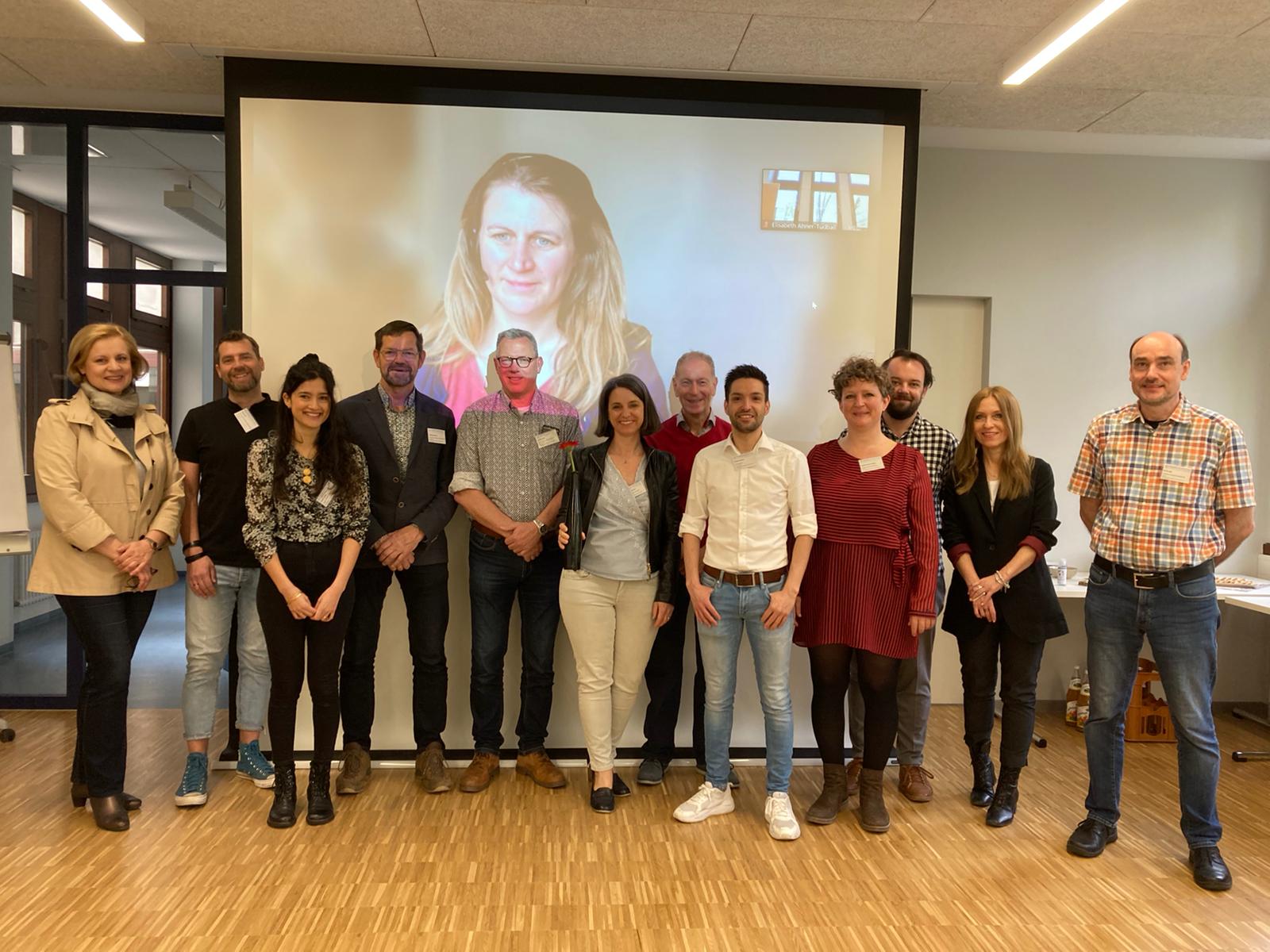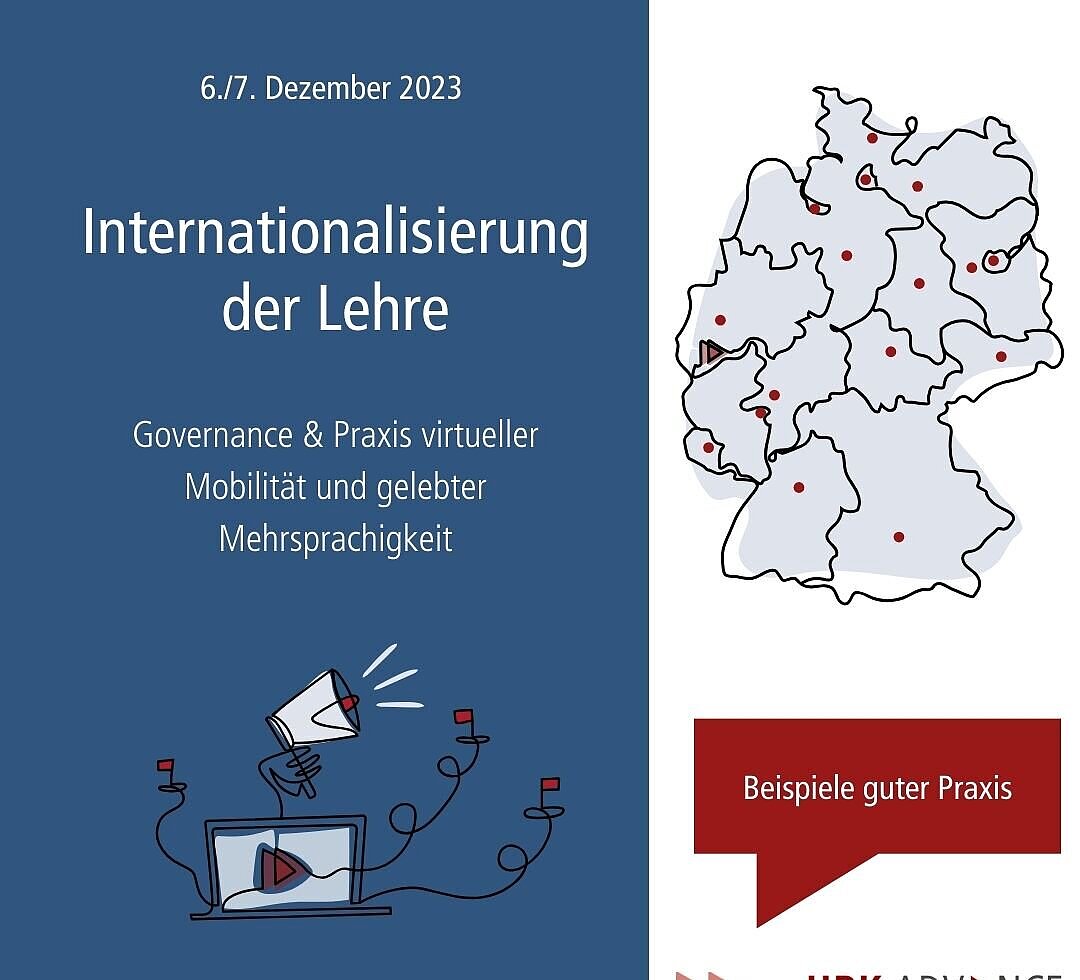
NETT DEVISE
Net(t)work for the Development and Exchange of Virtual and Inclusive Sustainability Education
Background
The project NETT DEVISE is the result of a long-term cooperation between the project partners as part of ERASMUS+ KA 131. The fact that in this KA 2 project we focus on virtual forms of cooperation is based on the intention to make our cooperation more sustainable, but also more inclusive. We want to offer our students international experiences that take into account the need to make our lifestyles "greener". Environmental impact, climate change and pollution of our environment make no halt at national borders. This is why collaborating with international partners in this field is of the utmost importance.
License and disclaimer
The following Project Results are the output of the Erasmus+ project "Net(t)work for the Development and Exchange of Virtual and Inclusive Sustainability Education (NETT DEVISE)" under Erasmus+ Key Action 2 (Erasmus+ project: 2021-1-DE01-KA220-HED-000031179).
The European Commission support for the production of these materials does not constitute an endorsement of the contents which reflects the views only of the authors, and the Commission cannot be held responsible for any use which may be made of the information contained therein.
Project Results
We focus on Education for Sustainable Development. The target audience are students of primary and secondary teacher education, in which all the partner institutions are specialised. It is our belief that future teachers are ideal multipliers for the important task of spreading the idea of a more eco-friendly and inclusive way of life. Not only the ESD content, also the application of sustainable and inclusive intercultural collaboration will be transported by our students to their future school classes: their experience of virtual exchange will be the basis for their own implementation in schools.
We have developed a curriculum that consists of three parts: a Virtual Exchange course with a subsequent week of attendance (3 ECTS) - Blended Intensive Programme/BIP (3 ECTS)- and a course at the home university on the topic of ESD (3 ECTS). By successfully completing all three components, students can qualify for the digital badge “ESD for teachers” which we’ve created in PR 6.
Detailed description of the ESD curriculum that we’ve developed with our project partners over the last months:
- Virtual Exchange Course on Moodle “ESD for Teachers: How to be a Change Agent at Primary and Secondary Schools” (3 ECTS)
- Blended Intensive Programme on the topic of ESD (3 ECTS)
- ESD course at home university (3 ECTS)
The Virtual Exchange Course can be implemented in Moodle, including all learning materials and presentations. Please follow this link to download the Moodle Back-up file.
It can be stated that we were successful in assuring the recognition of ECTS for participants of virtual mobilities or virtual exchange opportunities at our universities within this project. In line with the procedures outlined by the Erasmus without Paper (EWP) process and recommendations given by the German Rector’s Conference (HRK) project MODUS, we have given out guidelines and implemented measures to assure the recognition of the ECTS gained by participants of the offers made in PR1.
A major step for this was that our virtual exchange course is fully embedded in the in all standard curricula at the partner universities. This is one of the main requirements when we talk about gaining ECTS through virtual exchanges, and it must be stated that it took quite some effort to ensure that our VE course is part of every institution’s curriculum. Thanks to that fact, all participating students get the ECTS of the virtual exchange at their home institution. The recognition process is therefore fully in line with local requirements.
Having in mind that intercultural exchange does not always lead to intercultural learning and growth – not even a semester abroad guarantees growth in intercultural competence –, we develop a systematic material collection for pre-trained faculty (see PR 4) on virtual intercultural mentoring with a focus on our "green" context.
The Green intercultural mentoring tool kit includes five videos, which can be used as an introduction to Virtual Exchange:
Video 1: Introduction to Virtual Exchange
Video 2: What is culture
Video 3: Cultural influences on Communication
Video 4: Mindful intercultural communication
Video 5: Sustainable Development
Despite the fact that our faculty is familiar with online teaching, the format of Virtual Exchange is still new to most. This is why we have developed a staff training framework (based on the “Online Training Co-laboratory” (OTC) by the EVOLVE project, see evolve-erasmus.eu/training/), addressing both the general aspects of design and implementation of Virtual Exchange in our context of ESD, but also adding a new component of how to mentor students in a virtual environment, enabling them to open up for the intercultural experience and for behavioral change, developing the attitude of a teacher as change agent.
The teacher training on virtual exchange had been designed as a full online blended course. It was 100% distance learning consisting of a 5-module Moodle course adapted from the EVOLVE Project (https://evolve-erasmus.eu/training-resources/) covered asynchronously and 6 synchronous meetings on Teams. The Virtual Course can be implemented in Moodle, including all learning materials and presentations. Please follow this link to download the Moodle Back-up file.
Virtual forms of mobility have the advantage of being both eco-friendly and inclusive, but as international educators, our interest is on students to gain intercultural competence.
The NETT DEVISE project aimed to evaluate the impact of various mobility forms (physical, virtual mobility, blended mobility, and virtual exchange) on students' cultural competence. The evaluation was based on established studies and frameworks, including those by Nuffic and Auer et al.
Project Consortium
Freiburg University of Education (PHFR)
Germany (Coordinator)
Ludwigsburg University of Education (PHL)
Germany
University of the National Education Commission, Krakow (PUK)
Poland
HAN University of Applied Sciences (HAN)
The Netherlands
Viaa, Christian University of Applied Sciences (VIAA)
The Netherlands
Contact
Project lead
Dr. Verena Bodenbender
☎ +49 761/682-565
✉ verena.bodenbender(at)ph-freiburg.de
Project management
Selina Lederer
☎ +49 761/682-374
✉ selina.lederer(at)ph-freiburg.de

Project Meeting in Krakow 25.-26.09.2024
The last Transnational Project Meeting in our Project Nett Devise took place in Krakow at the University of the National Education Commission from September 25-26 2024. During our meeting we discussed the upcoming Virtual Exchange Course "ESD for primary and secondary school teachers" (Course start October, 7) as well as the Virtual Exchange Training for Academic Staff (Course start October, 11). We're very happy about our Project outcomes and decided to continue with the Virtual ESD course after the Project ends in December 2024.

Virtual Exchange Course 07.10.-09.12.2024
The second round of our virtual exchange course "ESD for primary and secondary school teachers" (LSF: AAA 07) will take place from 07.10.-09.12.2024, with a subsequent attendance week at the VIAA Christian University of Applied Sciences in the Netherlands in April 2025. There will be a virtual intercultural preparation workshop for the Moodle course. The exchange course includes the modules Basics of ESD, World Citizenship and Globalitation as well as project work in international groups with students from the Netherlands, Poland and Germany. If you have any questions please contact Selina Lederer: selina.lederer@ph-freiburg.de

Danke an 180 Teilnehmer*innen unserer BNE-Tagung vom 4.-5. Juli 2024
Vom 4.-5. Juli fand im Rahmen unseres Erasmus+ Projekts NETT DEVISE und mit Unterstützung des Nachhaltigkeitsausschusses, die BNE-Tagung „Klima-Angst und andere Klima-Emotionen – Klimawandel lösungsorientiert unterrichten“ an unserer Hochschule statt. Wir freuen uns sehr, dass wir an beiden Tagen rund 180 Teilnehmer*innen begrüßen durften. Neben Vorträgen zu internen BNE-Projekten wie NETT DEVISE, gab es auch Vorträge von renommierten Persönlichkeiten auf dem Gebiet. Prof. Dr. Thomas Hoffmann bot spannende Impulse zum Thema “Lösungsorientiertes unterrichten“. Prof. Dr. Gerhard Reese diskutierte mit uns das Thema „Wie reagieren wir auf die Klimakrise und wie prägen diese Emotionen unser Verhalten?“ und Jun.-Prof‘in Dr. Katharina Schröer wagte einen Blick in die Zukunft „Welche Klimazukünfte erwarten uns?“. Die Tagung endete mit einem „Markt der Möglichkeiten - Nachhaltigkeit & BNE in der Region“ auf dem die Teilnehmenden sich über interne und externe Projekte zum Thema BNE informieren und in den Austausch kommen konnten. Die Tagung wurde aus Projektmitteln des Erasmus+ KA 2 Projekts NETT DEVISE finanziert. #cofundedbytheeuropeanunion

Start of the virtual exchange course in February 2024
Our virtual exchange course "ESD for primary and secondary school teachers" will take place from February 1st to March 31st, 2024, with a subsequent attendance week at the VIAA Christian University of Applied Sciences in the Netherlands from 21.-26.04.24. There will be a virtual intercultural preparation workshop for the Moodle course in January 2024. The exchange course includes the modules Basics of ESD, World Citizenship and Globalitation as well as project work in (small) international groups with students from the Netherlands, Poland and Germany.

Kick-off Meeting in Freiburg, April 2022
For the project kick-off, representatives of all project partners met at PH Freiburg on April 12th and 13th 2022. It was great to be able to meet mostly in person! Our new rector Prof. Dr. Hans-Georg Kotthoff greeted the partners, after which all partners gave presentations on their universities, their existing offers in ESD and teacher education in the national contexts. This resulted, together with the following sessions and workshops, in a lively and fruitful exchange on the current Project Results. Interested faculty of PH Freiburg also joined the curriculum session and networking lunches and the meeting formed a great basis for further cooperation.
 Poster presentation at NAFSA 2022Project Results for 2022, virtually presented at NAFSA 2022(383 KB)
Poster presentation at NAFSA 2022Project Results for 2022, virtually presented at NAFSA 2022(383 KB)


